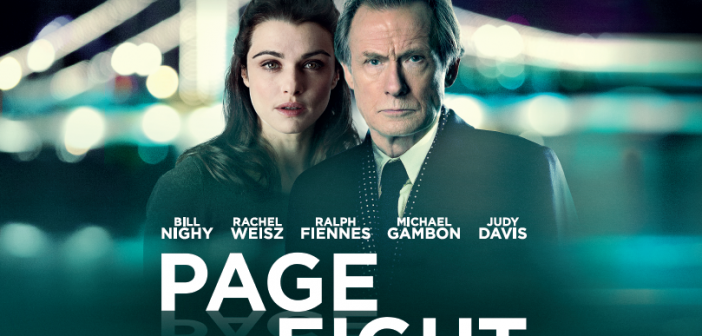“Page Eight” is a political drama produced by the BBC as a made-for-television film. David Hare, well known as a British television writer, is the writer and director of “Page Eight.” The primary cast members include Judy Davis, Ralph Fiennes, Michael Gambon, Tom Hughes, Bill Nighy, and Rachel Weisz. “Page Eight” debuted at the Edinburgh International Film Festival. It was later broadcast on BBC Two, BBC HD, and PBS.
Johnny Worricker (Bill Nighy) is an officer in MI5, the British intelligence service. His boss is Benedict Baron (Michael Gambon), the Director General of MI5. Baron is married to Johnny’s ex-wife and is raising Johnny’s daughter as his own. Baron, just before he dies of a heart attack, passes over a report to Johnny. Johnny notices a potentially explosive passage on page eight. This passage mentions that Americans are torturing prisoners in overseas prisons with the knowledge of the British government.
Johnny infers that Baron wanted him to make the report public, but MI5 officer Jill Tankard (Judy Davis) disagrees with this course of action. Tankard is working directly for the Prime Minister, who wants the report buried. The Prime Minister also promotes the Home Secretary to Deputy Prime Minister in order to buy her silence about the report. Johnny later discovers that Tankard has been using her son to keep tabs on Johnny.
Meanwhile, Johnny gets to know his neighbor Nancy Pierpan (Rachel Weisz), whose brother was killed by the Israeli Army with the help of an MI5 agent. The audience is left guessing about the exact nature of the relationship between them, although it seems as if it is staged. Furthermore, it is clear that MI5 is monitoring their conversations.
Johnny is eventually forced to leave his job in order discover the truth about the report. He disappears, leaving a painting with Nancy. She later hears a news broadcast announcing that the British government knew about the circumstances of her brother’s death. She knows that Johnny has leaked the information to the press and realizes that the painting Johnny left her is a clue to his whereabouts.
“Page Eight” explores the distrust that typically exists between the public and politicians. It does this by looking past the headlines on torture and prisons that were especially common when the film was made. Most films in this genre include car chases, explosions, shoot-outs, and assassinations. Hare keeps this film firmly grounded in the real world, so the characters only resort to violence when all else fails.
Hare does not fill the script with light banter or use any lines containing real warmth. The carefully stylized nature of the film means that it carries little emotional content. This is most apparent when Johnny critiques his daughter’s painting. Many directors would use this scene to illustrate the bond between father and daughter, but Johnny describes the painting as if he were a professional art critic.
The acting in “Page Eight” is consistently excellent, especially that of Fiennes as the despicable Prime Minister. The ideas in the film are complex, and do not underestimate the viewer’s intelligence. The cast members clearly enjoy the subtle dialogue and direction of the film, although many moviegoers will be accustomed to films with faster pacing.
This film has two primary story lines that mingle together as the film moves forward. Two of the subplots revolve around the Israeli-Palestinian conflict and Nancy’s brother. The first main story line is about Johnny’s personal life, which is almost nonexistent due to his inability to trust anyone. For example, he is extremely suspicious when Nancy shows an interest in him. This prevents the relationship from developing into a romance, and instead restricts it to a mutual friendship.
Johnny’s inability to express himself with any emotion ensures that he is unlikely ever to fall in love. His relationship with Nancy is primarily based on a fondness for arts and culture. Johnny’s least serious relationship is with Baron, who teases him affectionately.
The other story line in “Page Eight” follows Johnny’s professional life as he deals with the possibility of the Americans extracting information through torture. This part of the film shows that the torture itself is not as alarming as the fact that it has been officially acknowledged. “Page Eight” shows a government plunging into moral bankruptcy, as Johnny tries not to fall in line with this thinking. Johnny must remain grounded while resisting the pressure of the bureaucracy around him.

